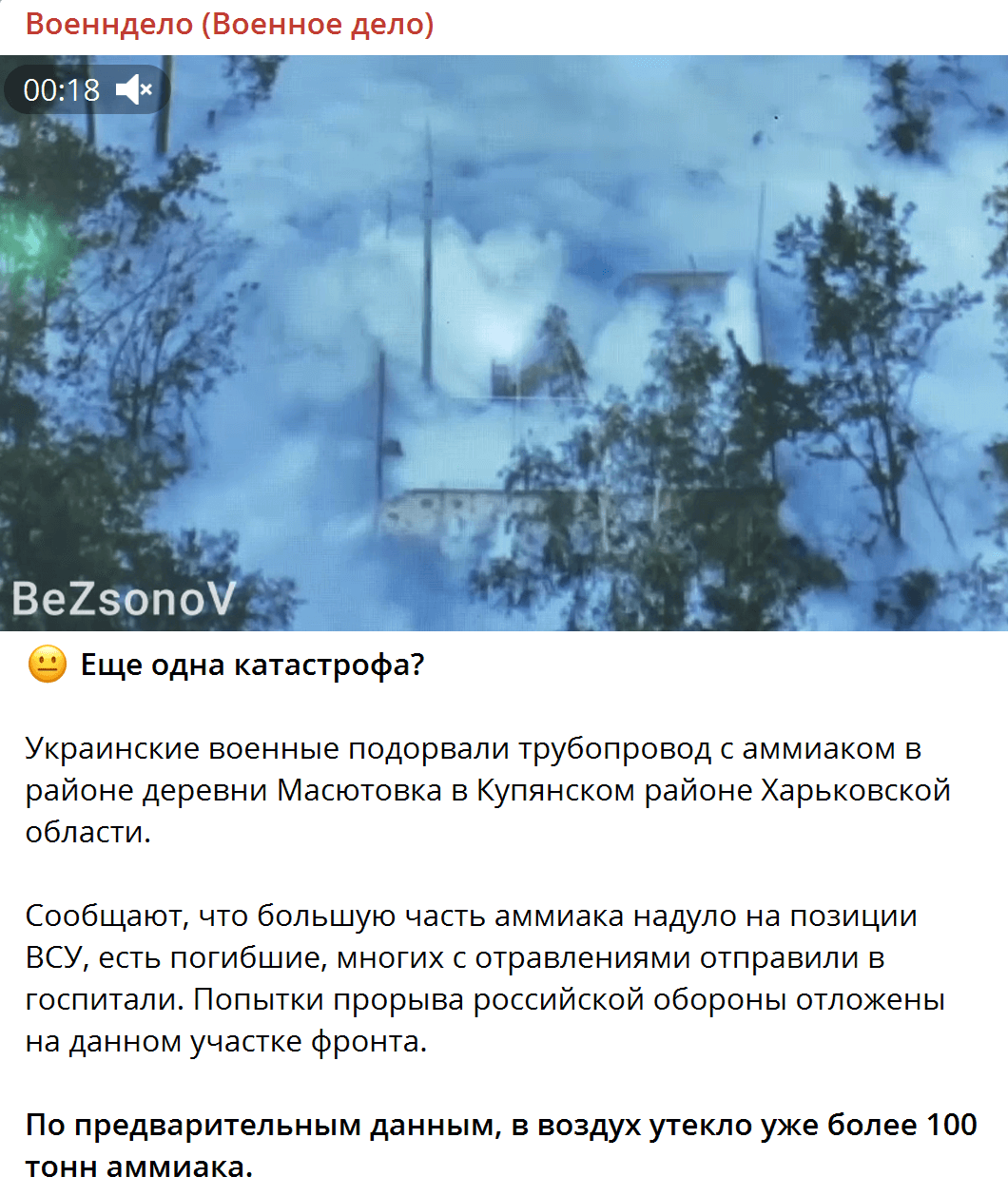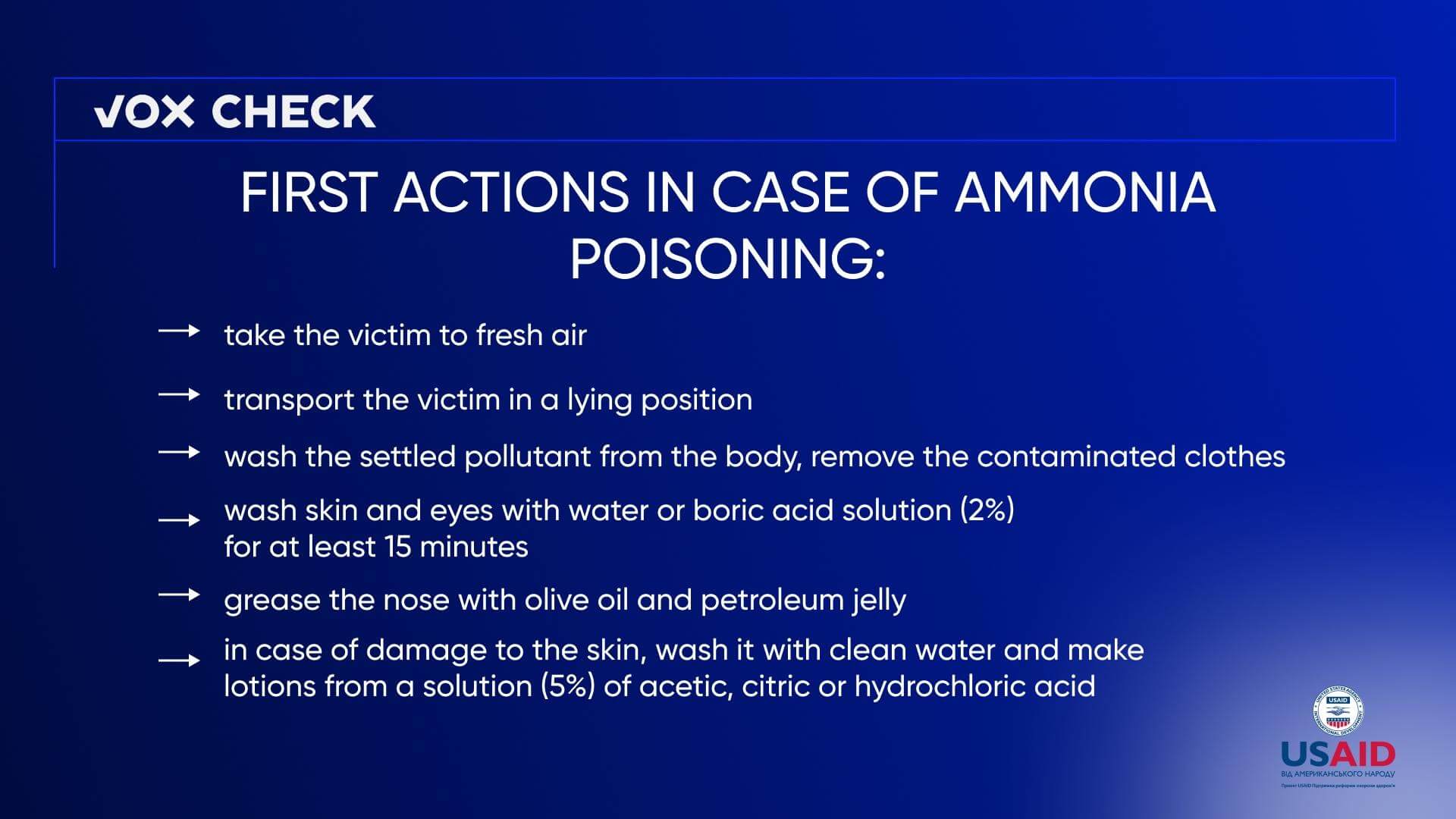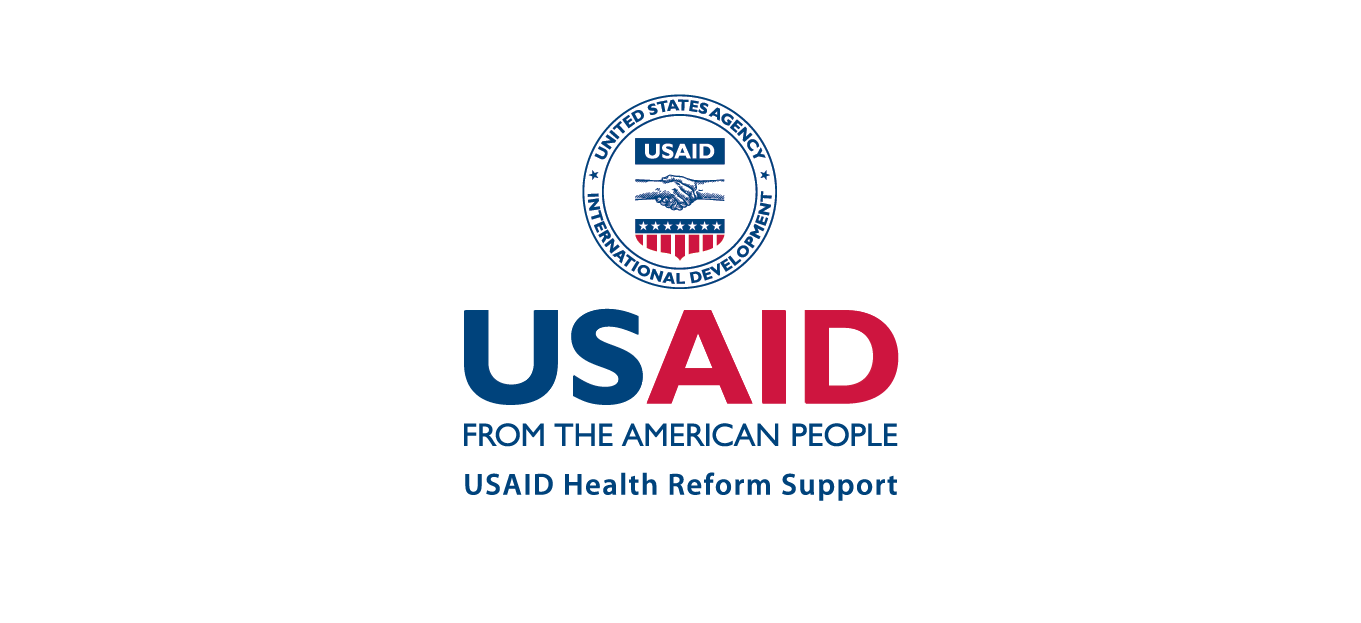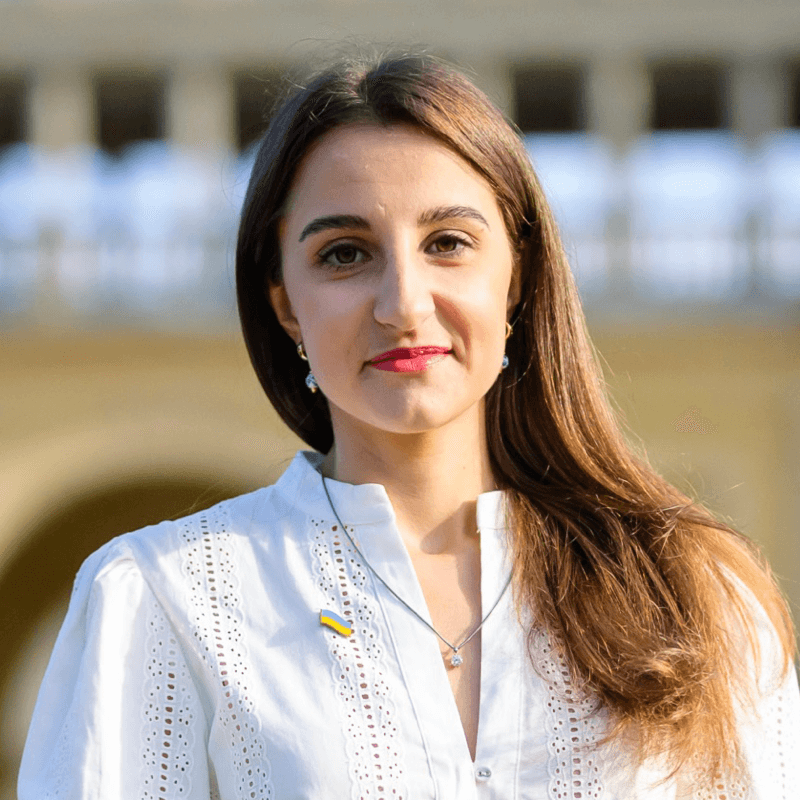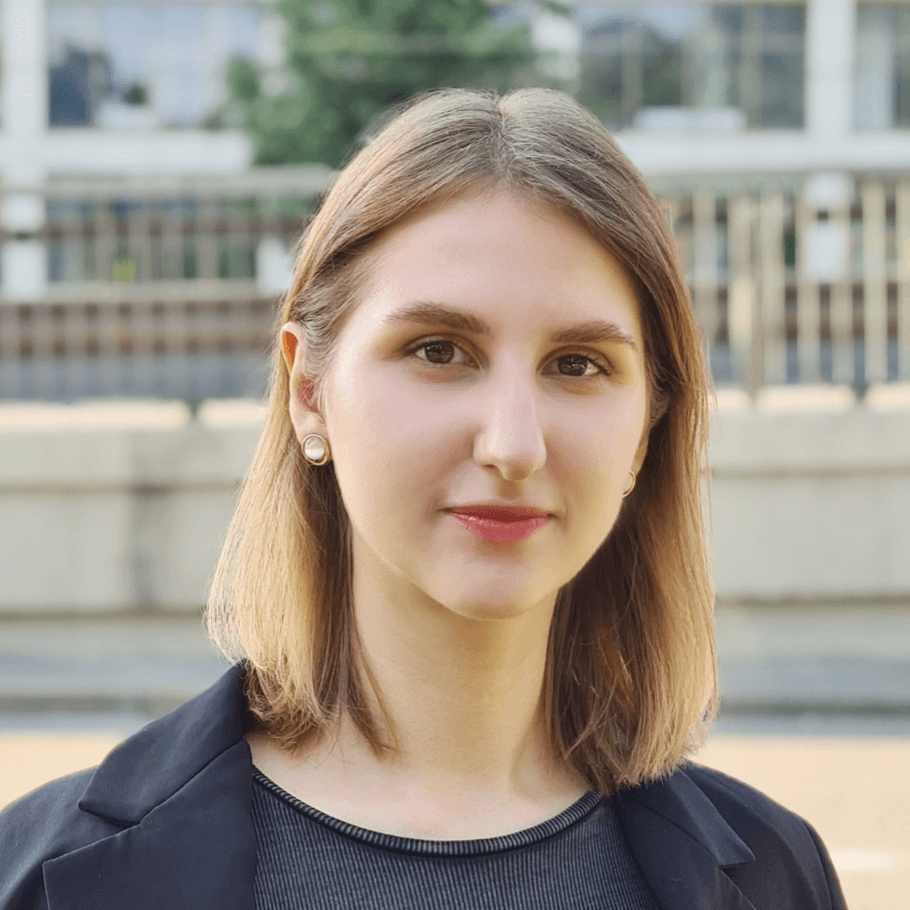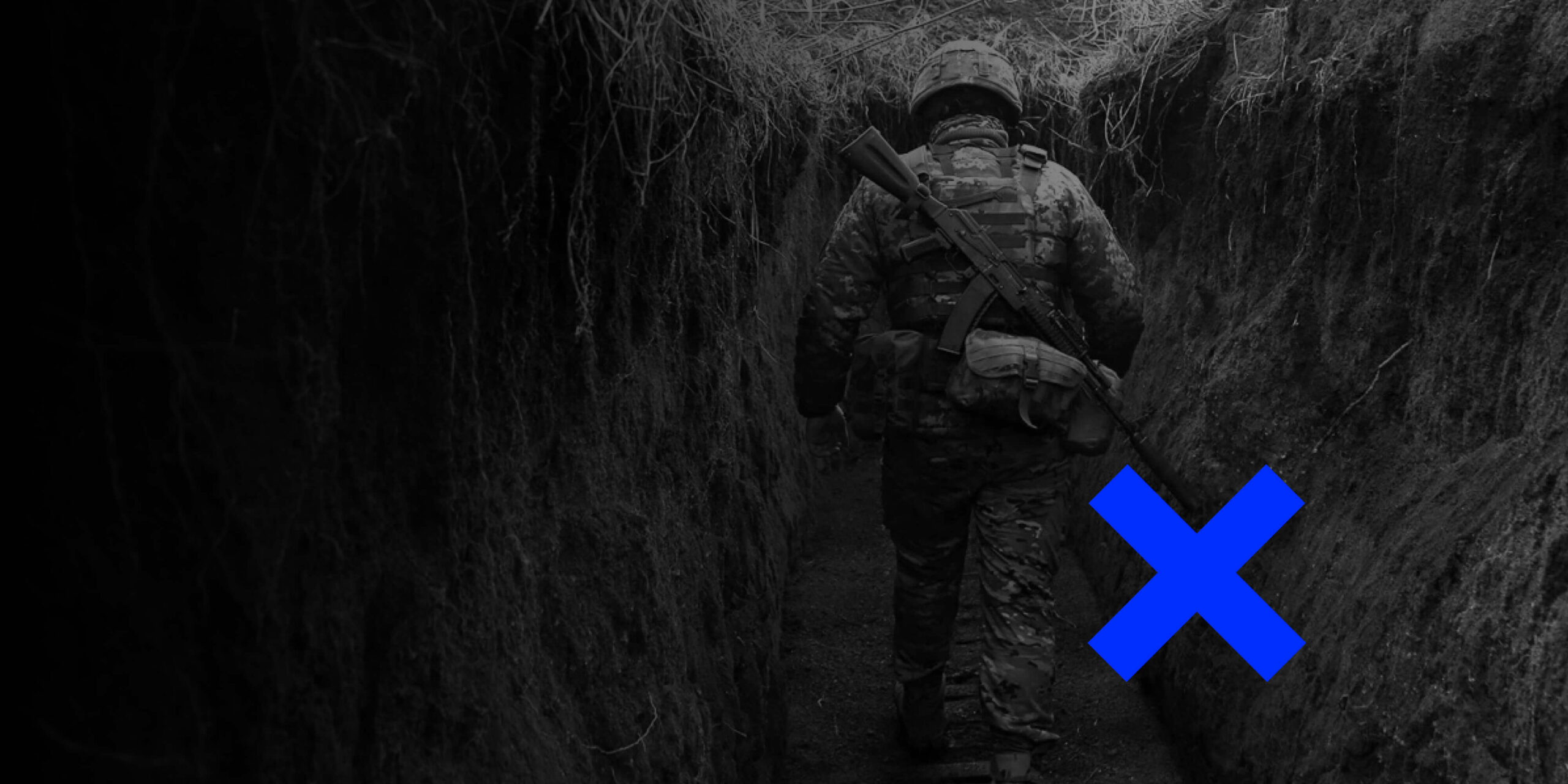In June, Russian media actively promoted a video with an ammonia cloud and accused Ukraine of undermining an ammonia pipeline. In addition, propagandists systematically spread conspiracy theories about the World Health Organization (WHO). According to the Kremlin media, the WHO allegedly orders the governments of states to make certain decisions. In particular, due to the fight against climate change, the German government is apparently planning to cut meat consumption to 10 grams per day.
With the support of the USAID Health Reform Support project, VoxCheck analyzes and refutes public health narratives spread in the information space of Ukraine, Belarus, and russia on a weekly basis.
Disinformation: The Ukrainian military hit an ammonia pipeline in the Kharkiv region
Russian media and Telegram channels are trying to hide their crimes and report that the Ukrainian military allegedly blew up an ammonia pipeline in the Kupiansk district of the Kharkiv region. Propagandists are spreading the video of the ammonia cloud and claim that more than 100 tons of the substance appeared in the air and fell on the positions of the Armed Forces. As a result of this cloud, there are deaths, and many people were sent to hospitals with poisoning.
Screenshot of the post
What’s the reality?
On June 5, 2023, the head of the Kharkiv Regional Military Administration, Oleh Syniehubov, reported that Russian troops hit into an ammonia pipeline. Later, Syniehubov stated that no ammonia had been detected in the air in Kupiansk. According to him, a leak of approximately 134 tons of ammonia occurred.
On June 6, 2023, Syniehubov declared that measurements of ammonia in the air in the nearest village of Masyutivka showed a level of 7 mg/m³, while the permissible norm is up to 10 mg/m³. Oleh Syniehubov added that the lives and health of people in the nearby villages were not at risk, and there was no need to evacuate the residents of these villages. On the same day, the Russians attacked the ammonia pipeline for the second time. In total, six hits were recorded in the area of the pumping station in the village of Masyutivka.
Furthermore, we have not found any statements from official sources or in Ukrainian media regarding the spread of ammonia to the positions of the Ukrainian Armed Forces. There is also no evidence that many people affected by poisoning were transported to hospitals.
The Russians targeted the Tolyatti-Odesa ammonia pipeline, which runs through Russia and Ukraine. In particular, the pipeline runs along the Kharkiv, Luhansk, Donetsk, Zaporizhzhia, Kherson, Dnipropetrovsk, and Mykolaiv regions and ends at the Odesa Port Plant. However, as of February 24, 2022, the Tolyatti — Odesa ammonia pipeline is not working, and the leak occurred from ammonia residues. With reference to an anonymous source, the Ukrinform news agency writes that the ammonia pipeline was damaged in the temporarily occupied territory of Ukraine, so it is difficult to assess the scale of the destruction.
Back in 2022, the Russians demanded that the ammonia pipeline be restored in exchange for a grain corridor. In November 2022, Volodymyr Zelenskyi allowed the restoration of the ammonia pipeline, but on the condition of exchanging prisoners of war according to the “all for all” formula. At the same time, the Russians continue to shell the ammonia pipeline and try to destroy it.
Ammonia is a colorless gas consisting of nitrogen and hydrogen. Ammonia has a strong odor and can irritate the skin, eyes, nose, throa, and lungs. Ammonia can also be turned into a liquid and used in medicines, fertilizers, household detergents, and other products.
The Public Health Center of the Ministry of Health of Ukraine highlights the following signs of ammonia poisoning:
- strong cough and shortness of breath;
- eye and skin irritation;
- pulse frequency disturbance;
- redness of the skin.
Disinformation: Under the pretext of preparing for a new pandemic, the WHO is usurping power
There is information circulating on the Internet, citing the speech of Mislav Kolakušić, a Member of the European Parliament from Croatia, stating that the WHO should be declared a terrorist organization. Users provide several arguments:
- The WHO is attempting to usurp power and obtain authority over the leaders of its 194 member states under the guise of a new pandemic declared at the 76th World Health Assembly.
- The International Agreement on Pandemic Prevention and Preparedness would allow the WHO to close borders and impose quarantine restrictions without prior consultation with country leaders.
- The Director-General of the WHO, Tedros Ghebreyesus, is already listed in the Global Terrorism Database for his involvement in organizing genocide in Ethiopia.
- The WHO is influencing the decisions of governments. Due to climate change concerns, the German government plans to reduce meat consumption to 10 grams per day.
What’s the reality?
At the 76th World Health Assembly in May 2023, the Director-General of the WHO, Tedros Ghebreyesus, called for reforms to prepare for the possible emergence of new epidemics and emergencies. There are objective reasons for this: firstly, after the end of the COVID-19 pandemic, there remains a threat of the emergence of other strains. Secondly, a pandemic can originate from a different pathogen. Climate change, urban overcrowding, increased contact between humans and animals, and a shortage of healthcare workers only contribute to this.
That is why WHO members have begun developing an agreement on pandemic prevention, preparedness, and response. For this purpose, an Intergovernmental Negotiating Body has been established, representing countries worldwide. According to the plan, member countries will monitor and exchange data to promptly detect new diseases or pathogens and create a joint response plan for health emergencies.
However, there is no mention of any “usurpation of power” by the WHO. The head of the WHO denied the accusation that signatories to the new agreement would relinquish their sovereignty. He stated that the member states govern the process of negotiating the agreement, and the Intergovernmental Negotiating Body conducts global public hearings involving all stakeholders. The body does not determine the content of any international agreement. “The WHO is an expression of the sovereignty of its member states, and the WHO is exactly what its sovereign 194 member states want it to be,” said the organization’s leader.
According to the WHO Constitution, the organization only has the authority to make recommendations to member states. The draft agreement on pandemic prevention also states that countries have the right to determine their approach to the healthcare system as long as their actions do not pose a threat to other nations. The international agreement does not control the domestic policies of countries, nor does it grant the organization the power to close borders or impose quarantine restrictions in any country.
There is no information about Tedros Ghebreyesus in the Global Terrorism Database. There have also been no news reports in international media about the recognition of the WHO director as a terrorist. In 2020, there were also rumors spread that the head of the WHO was arrested for crimes against humanity and genocide. However, this was a fabricated news story published by the satirical American website The Vancouver Times.
In 2020, writer and journalist David Steinman filed a lawsuit against Tedros Ghebreyesus with the prosecutor of the International Criminal Court, accusing him of responsibility for genocide and crimes against humanity in Ethiopia. From 2012 to 2016, the head of the WHO served as Ethiopia’s Minister of Foreign Affairs and a member of the Executive Committee of the Tigray People’s Liberation Front. Steinman claimed that Tedros had the authority to control law enforcement agencies as the third-highest-ranking official in Ethiopia. According to the plaintiff, the WHO director gave orders to law enforcement officers to kill and torture protesters who took part in a demonstration in 2015. The prosecutor of the International Criminal Court was supposed to review the complaint and decide whether to initiate an investigation. However, there are no reports in open sources about the complaint being submitted to the court or the start of an investigation.
Furthermore, the information about Germany reducing the daily meat intake to 10 grams is false. According to Bernhard Watzl, President of the German Nutrition Society (DGE), the organization is reviewing its dietary recommendations. The 10 grams mentioned is one of the proposed models but not a recommendation. He assured that the amount of meat consumption per day would be much higher than 10 grams. According to the current recommendations of the society, one should consume no more than 300-600 grams of meat per week. Reducing the amount of meat in the diet is more beneficial for people’s health and helps combat climate change.
Mislav Kolakusic spread anti-scientific claims about COVID-19, spoke against vaccination, and accused the WHO of lying about the pandemic. A video in which the deputy suggested declaring the WHO a terrorist organization quickly became popular among anti-vaxxers, and it started to circulate on the internet. However, these claims are untrue. In previous episodes, we have thoroughly explained why the pandemic is not a fabrication but a real threat, and we debunked the fake that the WHO acknowledged the harm of COVID-19 vaccines after the pandemic ended.
This information piece was produced with the assistance of the United States Agency for International Development (USAID), provided on behalf of the people of the United States of America. This article’s content, which does not necessarily reflect the views of USAID, the United States Government, is the sole responsibility of Deloitte Consulting under contract #72012118C00001.
Attention
The authors do not work for, consult to, own shares in or receive funding from any company or organization that would benefit from this article, and have no relevant affiliations
